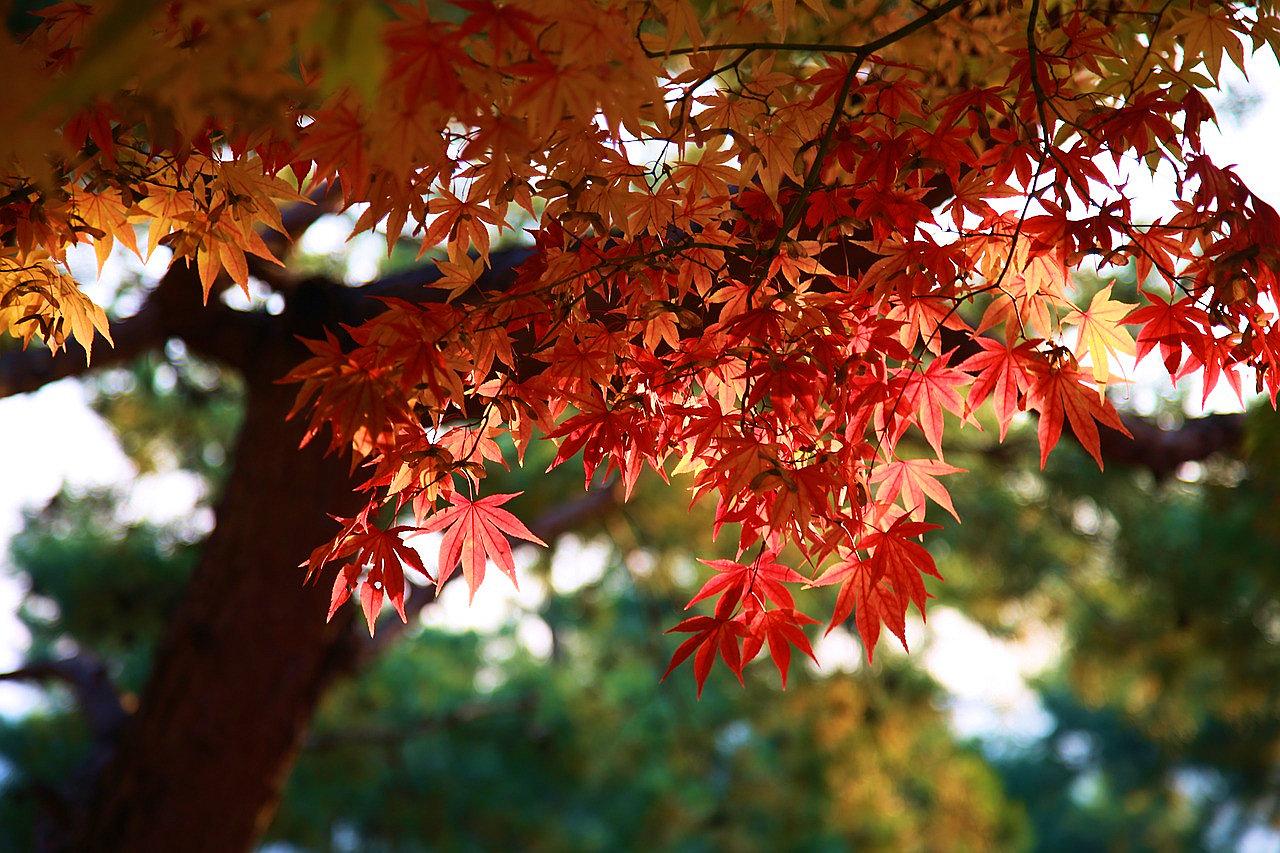Home › Forums › Poetry and Narrative Fiction › TREES
- This topic has 2 replies, 1 voice, and was last updated 11/17/2023 at 12:39 PM by David Filippone.
-
AuthorPosts
-
-
October 24, 2023 at 11:48 am #1201

Image: October Glory – by 피어나네 from Pixabay
https://pixabay.com/photos/leaves-maple-tree-autumn-leaves-4392723/
My friend Eric Lichtman shared this poem with me, it seemed to go right to the heart of the matter…
TREES
by Howard NemerovTo be a giant and keep quiet about it,
To stay in one’s own place;
To stand for the constant presence of process
And always to seem the same;
To be steady as a rock and always trembling,
Having the hard appearance of death
With the soft, fluent nature of growth,
One’s Being deceptively armored,
One’s Becoming deceptively vulnerable;
To be so tough, and take the light so well,
Freely providing forbidden knowledge
Of so many things about heaven and earth
For which we should otherwise have no word—Poems or people are rarely so lovely,
And even when they have great qualities
They tend to tell you rather than exemplify
What they believe themselves to be about,
While from the moving silence of trees,
Whether in storm or calm, in leaf and naked,
Night and day, we draw conclusions of our own,
Sustaining and unnoticed as our breath
And perilous also—though there has never been
A critical tree—about the nature of things. —Five of these October Glory maple trees half-circle my back porch. Two turn various shades of lemon-yellow in the Fall, and three turn crimson-red and orange. Even during Spring and Summer the shadows and shades of green seem infinite as the sun and wind play through the leaves… Just sitting under their shimmering cover is a constant inspiration… As Rinpoche writes below: “Skillful, knowing accommodation, ‘founded’ on open allowing, can let experience present itself as unfounded… When this happens, time’s dynamic can become directly available.” Beneath my cave of maples is also where I like reading Rinpoche’s books. The indented quote below from ‘Knowledge of Time and Space’, by Tarthang Tulku comes to mind, about what can happen while being with trees… [but also as Rinpoche writes in ‘Keys of Knowledge’, “any sense we like, any sense we already know how to love and respect… We can discover how to expand our sense-impressions, let them linger, fragrances and fragments of song, glimpses of colored light. Each one has its own story, its own manifold play.“] When we do allow sense-impressions to expand…
“…time presents a different knowing. This knowledge is not ‘new’ at all, for it does not depend on the linear structures of ‘old’ and ‘new’, ’before’ and ‘after’. Nor is it knowledge as a solution to an existing problem or an answer to an existing question—even though it may very well bring new insights or awaken a greater joy and balance in the light of which problems and questions dissolve.
Simple appreciation for time and its presentations, free from the demands of need, is itself knowledge. Not bound by desire, hope, and fear, appreciation suggests that the allowing of space and the dynamic flow of time can transform the ‘knowingness’ of knowledge. It leads to questioning and to a heartfelt way of being based in openness and vitality.
An appreciation that sustains inquiry can calm and balance the self’s tendency toward self-involvement and identification, which ‘takes over’ the energy of time and prevents it from flowing freely. Skillful, knowing accommodation, ‘founded’ on open allowing, can let experience present itself as unfounded, without thereby triggering the self’s frightened sense of vulnerability. When this happens, time’s dynamic can become directly available.” KTS p.58 [Emphasis added]
-
October 25, 2023 at 12:26 pm #1202
Several months ago I posted on this forum about our TSK Study Group discussions regarding noticing the seemingly simple, humble moments, and the importance of appreciating them, as a way into that ability to dwell in knowingness. I quoted a section from the book, ‘Keys of Knowledge,’ in which Rinpoche points out HOW. It is a simple, but profound pointing out. from Chapter 4, p. 96-99.
What Rinpoche seems to be saying, as he does in the above post, appreciation which springs from love and caring, that is pre-verbal, prior to the arrival of ‘I’, ‘me’, and ‘mine’, and sourced from the heart of being, is a different knowing, than our ordinary way of knowing… TIME presents a different knowing as Great Space allows. Rinpoche writes: “Simple appreciation for time and its presentations, free from the demands of need, is itself knowledge.” Read more at the link:
https://discussions.creativeinquiry.org/forums/topic/recognizing-dwelling-in-knowingness/
-
November 17, 2023 at 12:39 pm #1205
Reading ahead in KTS, Chapter 18, Motion of Time, p. 83, regarding Time’s ‘different knowing’, Rinpoche uses a couple of helpful descriptors that might help us to recognize this different knowing when it suddenly appears. In a TSK Group meeting I desperately tried to describe sitting under the maple trees reading SDTS, just sitting with a paragraph for a half-hour or more, just allowing whatever might arise. And intermittently Time’s ‘different knowing’ seemed to reveal. Rinpoche writes:
“The motion of time’s rhythm is not tied to things or structures, nor is it abstract. The sense of time’s rhythm is awake within us; if we stay with this sense, not applying models or engaging the ordinary appearance of objects, we notice within time’s rhythm a specific embodying, a movement without movement, somewhat like floating.
For the ‘logos’ of the temporal order, this movement can be thought of as too ‘slow’ to observe. But for the frozen world of substances that the temporal order establishes, the motion of time’s rhythm (and the interactions it leads to) are on the contrary incredibly fast, like the ceaseless motion of particles in the subatomic realm.
The ‘bystander-outsider’ can only regard the motion of time’s rhythm as entirely inaccessible, its speed something from another dimension. Human experience cannot grasp it; conceptual models cannot make sense of it.”
While the chapter may seem dense to read, the description does resonate. On page 85 at the top of the page he writes:
“Internally, however, rhythm comes ‘before’ the ‘logos’, whirling the points of measured time and space into being, ‘establishing’ the ‘logos’ and its ‘order’. ‘Points’ express the rhythm through which they arise and which sustains them. First they emerge from the ‘body of energy’; only second do they conform to the ‘order’ of the ‘logos’.”
The point being made here is, you can experience [glimpses of] times different knowing… and when you recognize this different knowing in your every day experience, it changes everything.
-
-
AuthorPosts
- You must be logged in to reply to this topic.
